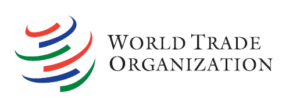Download Standard Toolkit
- Select
- English
- Spanish
- Portuguese
- French
- German
- Russian
- Arabic
- Chinese
Digital trade
The Standards Toolkit for Cross-Border Paperless Trade provides an overview of existing standards to help drive adoption, identify potential gaps and promote interoperability. Its objective is to equip every supply chain participant, both public and private, with some of the most notable and widely used standards to help push trade digitalisation to the next level.
Go directly to:
Global trade is the backbone of the world economy, valued at US$ 28 trillion in 2021. Despite its importance, trading across borders remains a notoriously complex process which is highly dependent on paper documents.
While a cross-border transaction involves multiple actors and requires the exchange of 36 documents and 240 copies on average, fewer than one percent of trade documents are fully digitized.
Through the Standards Toolkit for Cross-Border Paperless Trade, the International Chamber of Commerce’s Digital Standards Initiative and the World Trade Organization aim to equip every supply chain participant, both public and private, with some of the most notable and widely used standards to help enable a future of secure, trusted and seamless trade connectivity. The toolkit provides a starting point to guide users in their adoption of existing standards in order to reduce costs and complexity. It also provides users with an overview of interoperable digitization frameworks and standards-setting bodies.
Compiling the work of 16 standard-setting bodies, including the International Chamber of Commerce and the World Trade Organization, the ICC-WTO Standards Toolkit for Cross-Border Paperless Trade provides an overview of existing standards to drive adoption, identify potential gaps and promote interoperability.

CORPORATIONS and MSMEs
to reduce costs, access better financing terms, improve cashflow, and increase efficiency of their business operations.

CORPORATIONS and MSMEs
to reduce costs, access better financing terms, improve cashflow, and increase efficiency of their business operations.

CUSTOMS AUTHORITIES
to enable automated risk management, better fiscal evaluation and speedier goods clearance.
To learn more about the ICC Digital Standards Initiative, please contact Hannah Nguyen, Director of Digital Ecosystems at Hannah.nguyen@iccwbo.org.

